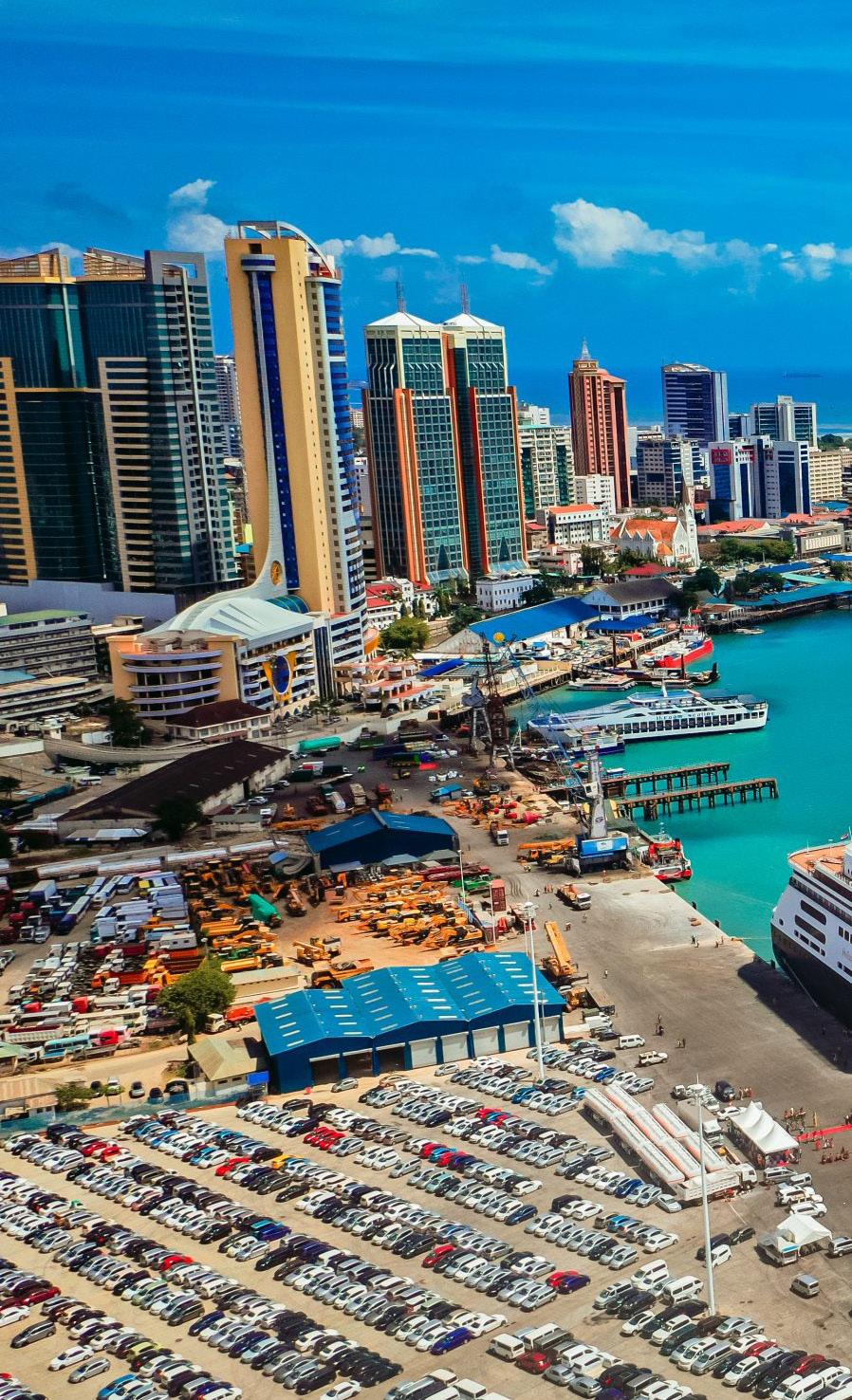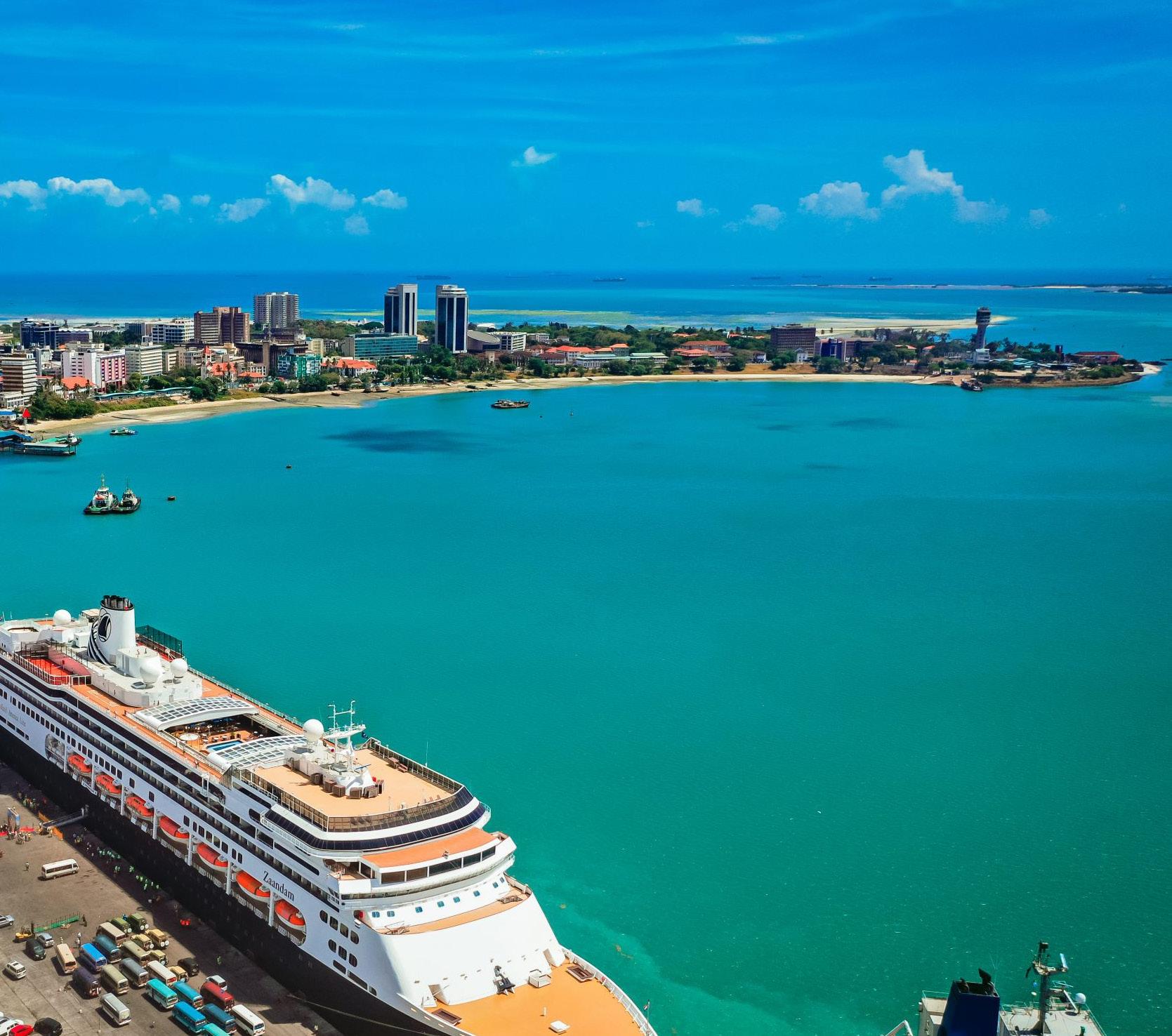
2 minute read
The African logistics hub: Strategies for global connectivity
Africa has long been an important region, known for its diverse landscapes and rich cultural heritage. Situated as a crossroads between the East and the West, it has held geographic and cultural significance throughout history.
However, in our modern world of globalization, Africa’s true potential as a central hub for global logistics and trade is only just beginning to be fully recognized. This emerging concept of Africa as a powerful logistics center not only highlights its strategic location, but also underscores its ambitions for economic growth.
Advertisement
As the world becomes more interconnected, with the seamless flow of goods, services, and ideas across borders, a fascinating narrative is unfolding around Africa’s unique role in linking global supply chains.
The Current Landscape: Africa’s Logistics at a Glance
Africa’s logistics scene is changing fast. Even though it faced many issues in the past, like poor infrastructure and political problems, things are now improving. Big investments have been made in transport, ports, and railways. Strong economic plans and global partnerships have made it easier to do business. There’s also a big push for new technology, digital tools, and a variety of sources that help learn how to record a video to document various aspects of logistics operations and other essential points, making trade smoother. Plus, Africa has a young and skilled workforce, which is great for business. There are still some challenges, but overall, Africa’s logistics is growing and becoming a key player in global trade.
Harnessing Strategic Locations: Ports and Infrastructure
Central to Africa’s growth in logistics is the development of ports and infrastructural landmarks. With the likes of the Djibouti Port and the ambitious Lamu Port in Kenya,
Africa is no longer just catering to its immediate neighborhood. These establishments are facilitating intercontinental trade routes, connecting the East with the West.
Have you ever pondered how efficient port management can influence global connectivity? Much like how a proficient airport facilitates seamless passenger travel, an efficient port acts as a catalyst for trade growth.

Embracing Technological Prowess: Digital Transformation
Technology plays a vital role in shaping the logistics landscape. By incorporating state-of-the-art digital solutions, such as blockchain for supply chain management and AI-powered tracking systems, Africa continues to stay at the forefront of innovation. It’s truly remarkable how the appropriate digital tools can revolutionize an entire continent’s logistical narrative in this technology-driven era.
Key Strategies for Building a Logistics Hub
To position Africa as a prime logistics hub, a blend of infrastructural, technological, and policy-driven strategies is essential. Let’s delve into the pivotal strategies:
Development Ports and Harbors: Investing in modern, efficient ports is crucial for maritime trade.
Infrastructure
Enhancing port capacities and automation can drastically reduce cargo dwell times.
Railways and Roads: Developing and maintaining an extensive network of railways and highways ensures efficient cargo movement inland.
Airports: With the rise of air freight, especially for perishable goods, a network of world-class airports can put Africa on the global air cargo map.
Investment in Technology
Digital Platforms: Deploying platforms for real-time cargo tracking, customs clearance, and port operations can significantly streamline logistics.
Automation and Robotics: Modern ports and warehouses equipped with automation can expedite cargo handling and reduce operational costs.
Sustainability Tech: Investing in technologies that promote sustainable logistics, like eco-friendly warehousing and green transportation modes, aligns with global ecoconscious trends.
Regional Collaboration
Seamless Borders: Collaborative policies to simplify cross-border trade and transport can ease the flow of goods between African countries.
Trade Blocs: Strengthening regional trade agreements, such as the African Continental Free Trade Area (AfCFTA), can spur intra-Africa trade.
Policy Reforms and Facilitation
Regulatory Streamlining: Simplifying customs procedures and reducing bureaucratic hurdles can significantly expedite cargo movement.
Foreign Direct Investment (FDI): Creating a conducive environment for FDI can bring in the needed capital and expertise to boost logistics infrastructure.
Capacity Building and Training
Skilled Workforce: Investing in training programs tailored to logistics and supply chain management ensures a skilled workforce ready to take on the challenges of modern logistics.
Industry-Academia Collaboration: Partnerships between logistics companies and educational institutions can foster innovation and research in the sector.
In synthesizing these strategies, Africa can not only bolster its logistics infrastruc-










